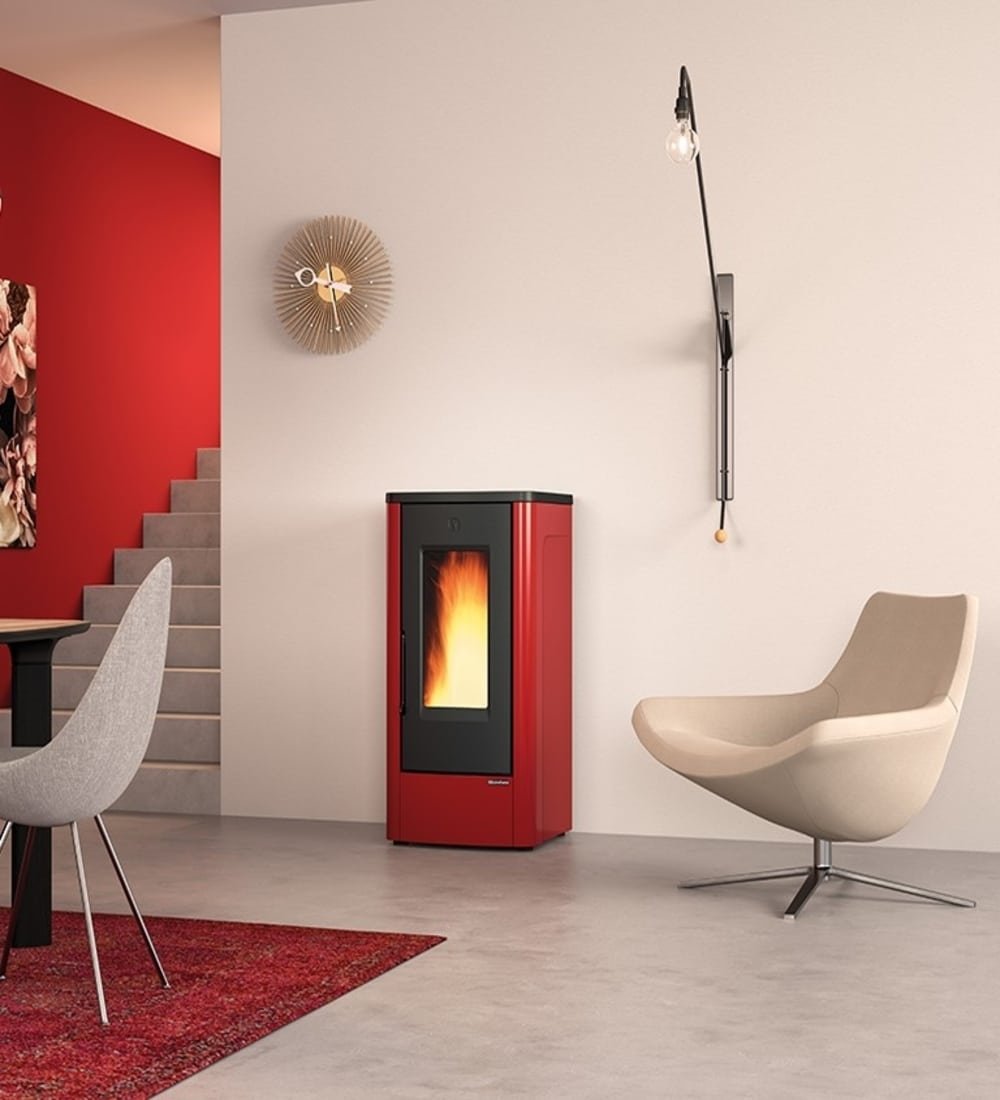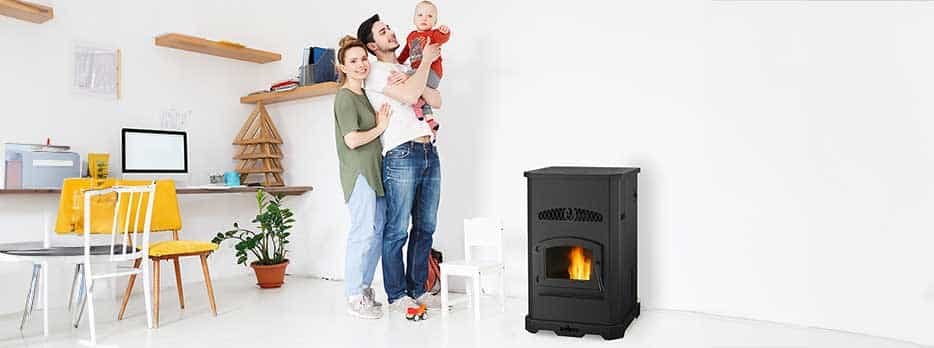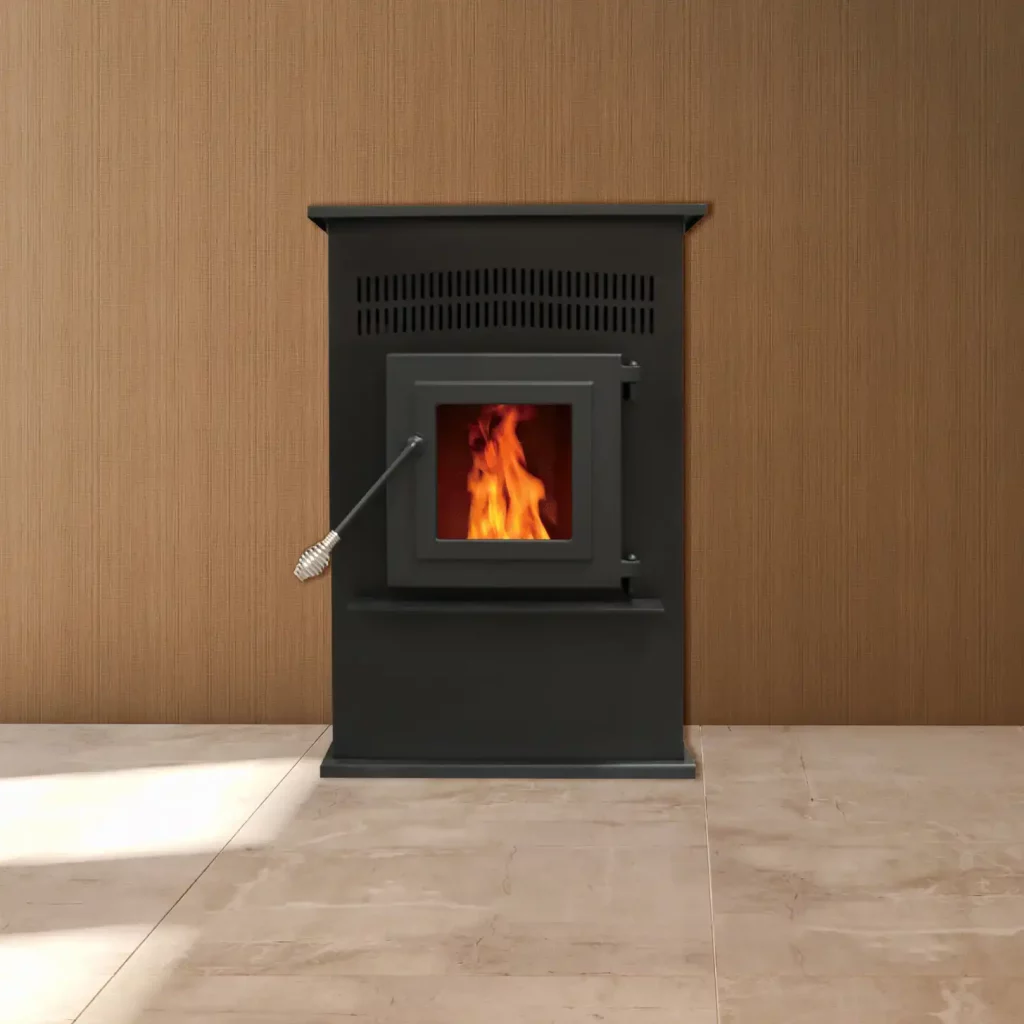In recent years, pellet stoves have gained popularity as an alternative heating solution, offering a more sustainable and efficient way to heat homes. Home owners seeking eco-friendly and cost-effective heating options often wonder if a pellet stove can effectively heat an entire house. This article aims to explore the capabilities, benefits, and considerations of using a pellet stove for whole-house heating.
Understanding Pellet Stoves:

How Pellet Stoves Work:
- Pellet stoves burn compressed wood pellets as their primary fuel source.
- The combustion process is automated, controlled by a thermostat for consistent heat output.
- Pellet stoves use a hopper to store pellets, which are fed into the combustion chamber as needed.
Efficiency and Environmental Impact:
- Pellet stoves are known for their high efficiency, often exceeding 80%.
- The use of renewable wood pellets makes them a more environmentally friendly option compared to traditional heating methods.
Heating Capacity:
Size and Output:
- Pellet stoves come in various sizes, with different heat output capacities measured in British Thermal Units (BTUs).
- The size of the stove should be matched to the square footage of the house for optimal heating.
Factors Influencing Heating Capacity:
- Insulation: Well-insulated homes retain heat better, maximizing the effectiveness of a pellet stove.
- Climate: Pellet stoves may be more suitable for moderate climates, and additional heating sources may be required in extremely cold regions.
Advantages of Using a Pellet Stove for Whole-House Heating:

Cost Efficiency:
- Pellet fuel is often more cost-effective than traditional fuels like oil or propane.
- Government incentives and rebates are available for the installation of energy-efficient pellet stoves.
Renewable Energy Source:
- Wood pellets are a renewable resource, promoting sustainability in home heating.
- Pellet stoves contribute to reducing dependence on fossil fuels.
Automation and Convenience:
- Pellet stoves can be programmed and controlled remotely, providing convenient heating solutions.
- The automated feeding system reduces the need for constant attention and manual fueling.
Considerations and Challenges:
Upfront Costs:
- The initial investment in a pellet stove and installation may be higher than traditional heating systems.
- Long-term savings on fuel costs can offset the initial expenses.
Pellet Availability and Storage:
- The availability of wood pellets may vary regionally, affecting accessibility and pricing.
- Homeowners need adequate storage space for pellets, which should be kept in a dry environment.
Maintenance Requirements:
- Regular maintenance, including cleaning and ash removal, is essential for optimal stove performance.
- Understanding and following manufacturer guidelines is crucial for safety and efficiency.
Supplemental Heating and Zoning:
Combining with Other Heating Sources:
- Pellet stoves can be used in conjunction with existing heating systems for comprehensive coverage.
- Combining different heating sources allows for flexibility based on weather conditions.
Zoning and Temperature Control:
- Using multiple pellet stoves or strategically placing them in different zones allows for targeted heating.
- Smart thermostat systems enable precise temperature control for improved energy efficiency.
Pellet Stove Placement and Air Circulation:
Strategic Placement:
Proper placement of a pellet stove is crucial for optimal heat distribution throughout the house. Consider central locations that allow for even warmth in common living areas.
Air Circulation:
Understanding the airflow patterns in your home helps maximize the effectiveness of a pellet stove. Using fans or adjusting vents can facilitate the movement of warm air, preventing uneven heating.
Pellet Stove Sizing and BTU Calculations:
Sizing Guidelines:
Consulting with a professional or using online calculators can help determine the appropriate size of a pellet stove for your home. Undersized stoves may struggle to heat the entire house, while oversized ones can lead to inefficiency and wasted fuel.
BTU Calculations:
Accurate calculations of your home’s heating needs in BTUs are essential for selecting the right pellet stove. Consider factors like insulation, ceiling height, and local climate to determine the required heating capacity.
Environmental Considerations and Emissions:
Emission Ratings:
When choosing a pellet stove, consider models with low emission ratings to minimize environmental impact.
Look for stoves certified by organizations such as the Environmental Protection Agency (EPA) for cleaner burning and reduced particulate matter.
Carbon Footprint:
While wood pellets are considered a renewable resource, it’s essential to assess the overall carbon footprint, including production and transportation, to gauge the environmental impact accurately.
Pellet Quality and Storage:
Choosing High-Quality Pellets:
The quality of wood pellets directly affects combustion efficiency and stove performance.
Opt for high-quality pellets with low moisture content and minimal impurities to ensure clean and efficient burning.
Proper Pellet Storage:
Maintaining proper storage conditions for pellets is crucial to prevent degradation.
Store pellets in a cool, dry place and consider using airtight containers to protect against moisture and pests.
Evaluating Climate Suitability:
Ideal Climates for Pellet Stoves:
Pellet stoves generally perform well in regions with milder climates.In extremely cold climates, supplementary heating sources may be necessary to meet the heating demands of the entire house.
Seasonal Considerations:
Consider how well a pellet stove can transition between heating and non-heating seasons, and whether it meets your year-round heating needs.
Future Technological Developments:
Emerging Technologies:
As we navigate the ever-evolving landscape of home heating solutions, staying abreast of emerging technologies is paramount. Innovations in pellet stove technology continue to transform the way we heat our homes, focusing on efficiency, sustainability, and user convenience.
Improved Combustion Systems:
Recent advancements in combustion systems have led to more efficient and cleaner burning pellet stoves. Manufacturers are investing in research and development to optimize combustion processes, reducing emissions and enhancing overall stove performance. This not only benefits the environment by minimizing air pollutants but also contributes to a more efficient use of fuel, ultimately translating into cost savings for homeowners.
Smart Home Integration:
Smart home tech is transforming pellet stoves. With mobile apps, users can control temperature, monitor fuel, and schedule heating cycles remotely, enhancing convenience and flexibility in managing home heating.
Energy-Efficient Features:
Ongoing research is focused on developing energy-efficient features that optimize the use of wood pellets. This includes improved heat exchangers, advanced insulation, and sensors that can dynamically adjust combustion parameters based on real-time conditions. Such features not only enhance the overall performance of pellet stoves but also contribute to a more sustainable and cost-effective heating solution for entire households.
Research and Reviews:
Before investing in a pellet stove for whole-house heating, thorough research and reviews are indispensable. The market is dynamic, with new models and technologies emerging regularly. Here are key steps to ensure an informed decision:
Professional Recommendations:
Consult with heating professionals and experts in the field. Local dealers and installers often have practical insights into the performance of various pellet stove models in specific climates and conditions. Their expertise can guide you toward options that best suit your heating needs.
Conclusion:
In conclusion, the question of whether a pellet stove can effectively heat a whole house depends on various factors, including size, climate, maintenance, and proper usage. When carefully selected and integrated into a home’s heating strategy, a pellet stove can indeed serve as an efficient, cost-effective, and environmentally friendly solution for whole-house heating. By considering the discussed aspects, homeowners can make informed decisions to maximize the benefits of pellet stoves and create a comfortable, sustainable living environment.
If you want to read more articles like this, VISIT HERE


